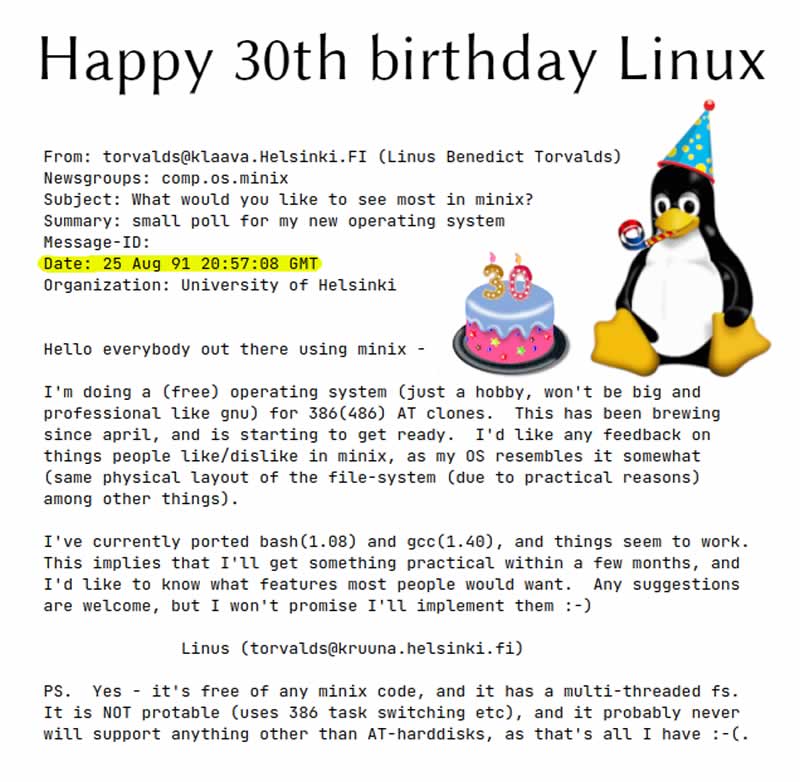Linux has been around for 30 years. Even if the first Linux kernel was only released on September 17, 1991, August 25, 1991, is generally considered to be the birth of the free Linux operating system, as the chief developer Linus Torvalds published a corresponding announcement on Usenet on that day.
From then, the free and open operating system spread in various forms virtually everywhere. From cloud computing to smartphones, from IoT to machine learning and Artificial Intelligence — today it is difficult to find a technological space in which Linux does not have a clear leading role. Even Microsoft has given up on that battle for years!
30 years ago, on August 25, 1991, the then 21-year-old student Linus Torvalds published a corresponding announcement in the Usenet topic group “comp.os.minix” — the place where people discuss about the Unix operating system Minix, and promised a free operating system for i386 , that should start as a hobby project.
At that time, Linux was still released under a proprietary license from Linus Torvalds, which prohibited commercial use. Since this approach stood in the way of the spread of the operating system, Linux became free software and was placed under the GNUv2 license.
After 30 years, it can no longer be said of a hobby project, and Linux has become an indispensable operating system kernel.
For thirty years, Linus Torvalds has led the development of the Linux kernel, inspiring countless other developers and open source projects. Linus also created Git in 2005 to make it easier to manage the kernel development process, since then Git has grown into a popular version control system trusted by countless open source and proprietary projects.



